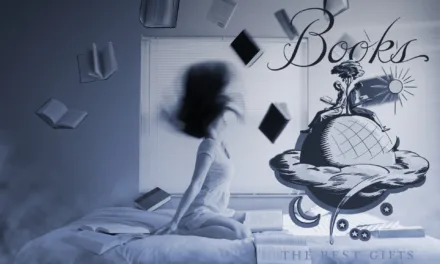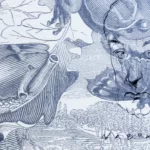
Are there any books on writing you can recommend?

“People always talk about different writing books but I’m not sure which ones would be worth my time. There are just too many! What books would you recommend for someone who wants to improve their writing?”
How-to guides are certainly a dime a dozen in writing circles. They all vary significantly in quality and usefulness, and far too many of them try to sell themselves with flashy promises that aren’t realistically achievable. Can you write and publish a novel in 30 days? Sure. But should you?
For me personally, I find writing guides more inspirational than practical, because if I may speak freely for a moment, there simply is no substitute for doing. You’ll learn more by simply sitting down to write than you ever will from a book telling you how to do it.
But with that said, I do genuinely think there is a place for writing guides. The power of inspiration is not something that can be overstated. Sometimes all you need is a starting point, or someone to break the process down into realistically actionable parts to make the act of writing less overwhelming.
What writing guides you’ll find useful are also very personal. Having already gone into depth on Stephen King’s On Writing and Elmore Leonard’s 10 Rules for Writing, I’ll pass on those for the sake of this answer (I’ve linked the titles to their relevant articles), so the rest of this list will be books I’ve found useful in various ways, whether they be practical, inspirational, or simply great primers for cultivating the best mindset for writing.
Save the Cat! Writes a Novel by Jessica Brody
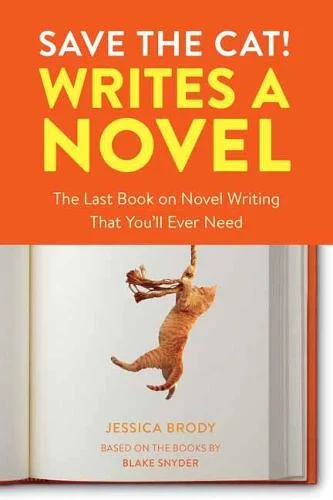
Save the Cat! Writes a Novel is probably the best-known book on writing on this list. Jessica Brody has taken Blake Snyder’s original screenwriting guide and adapted it specifically for novelists. The book breaks down the essential beats of successful storytelling, offering a clear framework that can help you successfully structure your narrative.
Where it really shines is in the way it demystifies the concept of plot. While there is no single way to structure a plot, if you find the concept overwhelming, or you have no idea where to start, then Jessica Brody is the perfect teacher. She makes it clear and easy to follow, so it won’t feel anywhere near as overwhelming when you come to sit down and write.
What it does well:
- Provides a clear, easy-to-follow approach to plotting and story structure.
- Breaks down successful story beats with simple examples.
- Offers practical templates that can be applied to most genres.
- Makes complex plotting concepts accessible to beginners.
Could be better:
- Can feel rather prescriptive.
- Focuses primarily on commercial fiction structures.
- May not suit more experimental or literary works.
- Sometimes oversimplifies the creative process.
It’s worth noting as well that Jessica Brody is the founder of Writing Mastery Academy, so you can also access a lot of her expertise in course form if that suits you better.
Finish Your First Novel by Char Ana
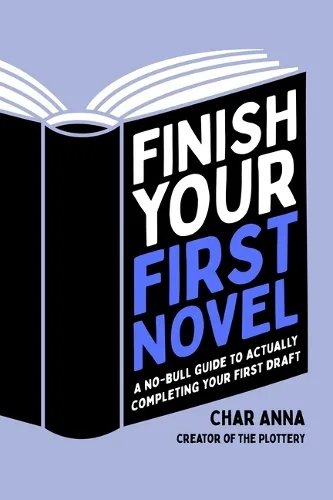
Finish Your First Novel is one of the more simple entries on this list. Char Ana breaks down the process of writing a novel into its component parts and writes about it clearly and with none of the fluff you might get from other creative writing books.
This book is not about complex theory; instead, it focuses on character-driven stories. Central to Char’s writing ethos is that it’s fundamentally the characters that drive the plot, so if you get to know your characters, plotting becomes easy. It’s a sound approach to storytelling and is definitely a good way for beginners to tackle their first novels.
What it does well:
- Excellent for first-time novelists.
- Focuses on character-driven plotting.
- Provides actionable steps and milestones.
- Addresses common obstacles and how to overcome them.
Could be better:
- Less useful for experienced writers.
- Limited discussion of advanced writing techniques.
- Written to appeal primarily to a younger audience.
Char Ana is also the founder of The Plottery. She shares regular writing tips on her social media pages and also offers a complete guide to mindset, plotting, and drafting in her Soft Plotting Program.
Steering the Craft by Ursula K. Le Guin
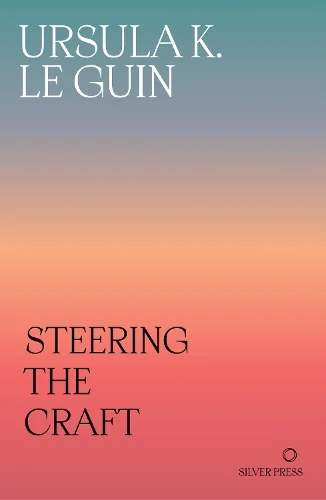
It took me an embarrassingly long time to learn that Ursula K. Le Guin had written a craft book. She’s been one of my favourite writers since I was a child, and Steering the Craft is criminally underrated. It focuses entirely on the techniques of writing, which makes it quite unique as far as books by famous authors go.
Le Guin offers nuanced and thought-provoking advice about much of the nitty-gritty of writing. These include her thoughts on passive vs. active voice, present vs. past tense and what you leave out or leave in when editing your work. It’s short, precise, and an excellent reference that emphasises the specifics of creative writing like voice, perspective, sentence structure, exposition, and punctuation. It encourages you to slow down and think carefully about the words you choose.
What it does well:
- Deep dives into the mechanics of writing.
- Has a strong focus on sentence-level craft.
- Gives excellent practical tips.
- Gives practical exercises to get you writing, and at the end of them, you will definitely be a better writer.
Could be better:
- Can be challenging for beginners.
- Has less focus on overall story structure like plot, dialogue, characterisation, or pacing.
- Does have some advice that could run counter to authorial voice and style.
The Science of Storytelling by Will Storr
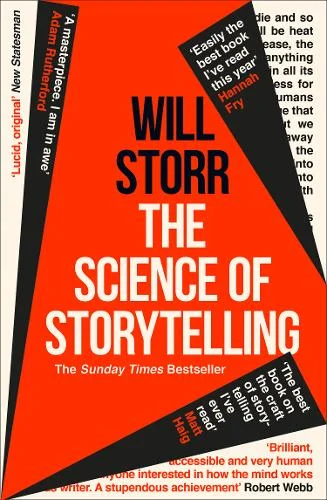
Will Storr wrote one of my favourite works of non-fiction (Will Storr vs The Supernatural), and since then, he’s been one of my favourite long-form journalists. His writing style is engaging and accessible, and in The Science of Storytelling, he essentially tells the story of storytelling.
Storytelling is fundamental to what makes us human. Storr analyses where literary criticism and the human psyche intersect with a mixture of both historical and scientific research. It’s as much about the art of storytelling as it is about why we need stories. Essentially, if we understand why we tell stories, we’ll tell better stories. It’s less of a how-to guide than a why-to guide.
What it does well:
- Gives fascinating psychological and sociological insights into how stories work.
- Bridges the gap between theory and practice.
- Offers fresh perspectives on character and story development.
- Is well-researched and with interesting examples.
Could be better:
- Offers very few practical tips or exercises to help grasp the concepts.
- Can be very academic in places.
- May overwhelm writers looking for quick solutions.
Reading Like a Writer by Francine Prose
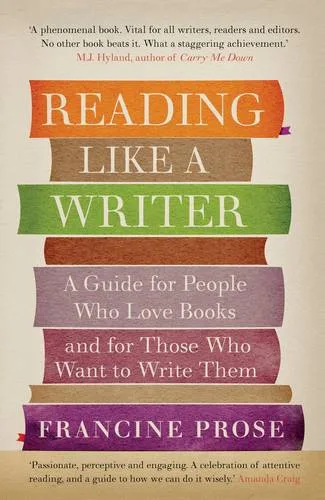
What I love about Francine Prose’s Reading Like a Writer is that it makes you really think about what you read, not just about what you write. It gives you the skills you need to educate yourself and learn from the writers you admire, instead of just giving you one-off writing tips.
Reading Like a Writer is very much a book about mindset. Prose encourages you to slow down when reading so you can revel in the words and how an author constructs their work. A lot of the book focuses on close reading and looks at specific passages in detail to see how her favourite writers have communicated with the audience. And by giving examples, she shows how you, too, can do the same, and come out of the experience a better writer.
What it does well:
- Teaches critical reading skills essential for writers.
- Gives a deep analysis of literary excerpts to show how other writers use their skills.
- Encourages a thoughtful approach to writing.
Could be better:
- Prose has an almost exclusive focus on literary writers with very little representation of any kind of genre fiction.
- Can be slow-paced and requires a significant time investment.
- Offers little practical guidance.
Other recommendations
Remember, no single book will teach you everything you need to know about writing. The best approach is often to read widely and experiment practically by actually doing some writing. There is no silver bullet or shortcut that will give you all the answers, so here are some other book recommendations that might help you find one that works best for you and your process.
Note: All purchase links in this post are affiliate links through BookShop.org, and Novlr may earn a small commission – every purchase supports independent bookstores.












